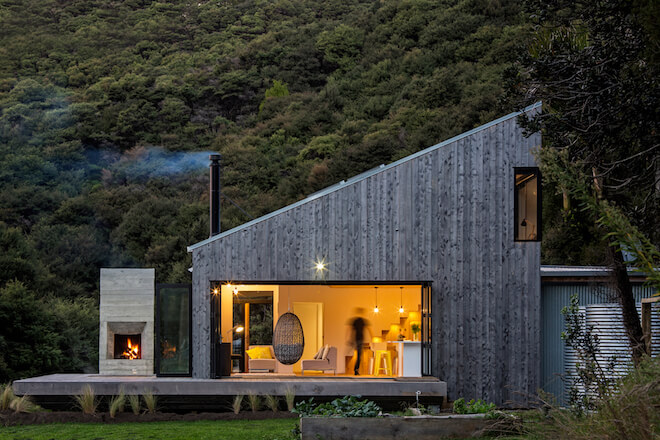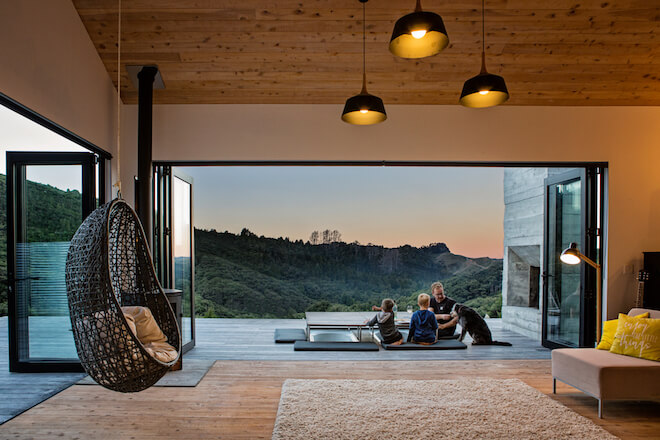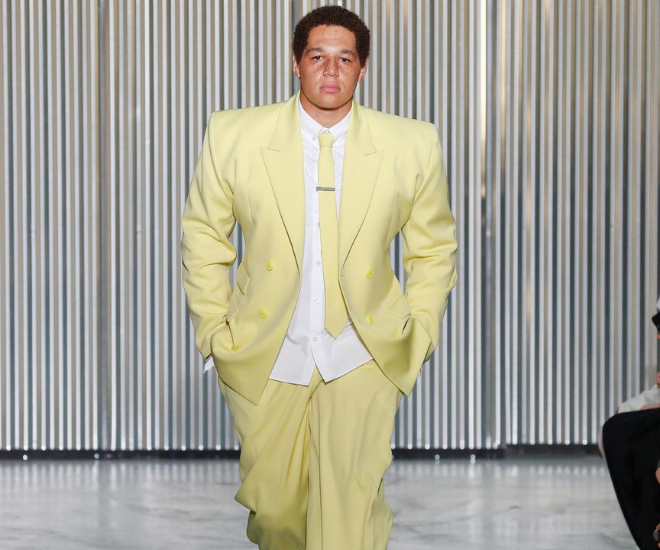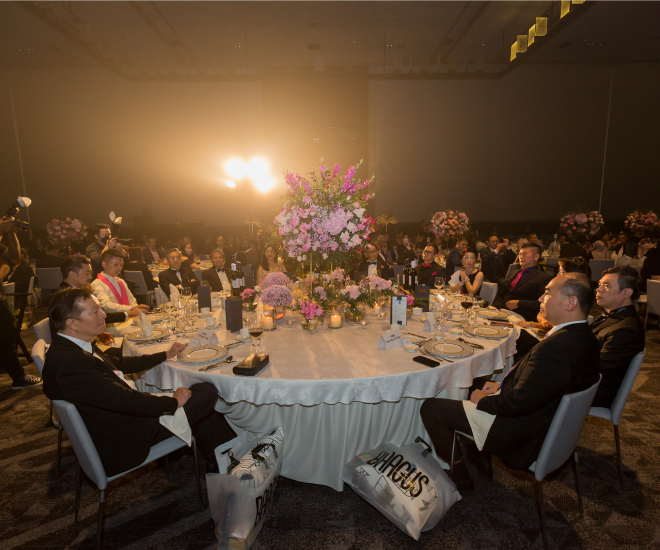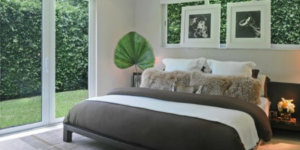Four Properties That Bring the Outdoors to Indoor Spaces
Frank Lloyd Wright might have died over 50 years ago but his architectural influence in popularising the concept of outdoors indoors architecture remain timeless. Here are 4 properties that continue his legacy of bringing the outside, inside.
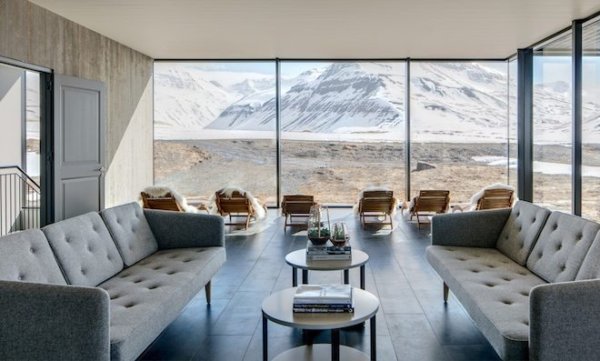
Expansive landscape views from the living area of The Deplar Farm.
Outside inside architecture seems relatively recent, but the truth is, it was an idea championed by an influential U.S. architect slightly under 110 years ago. Frank Lloyd Wright might have died over 50 years ago but his architectural influence in popularising the concept of outdoors indoors architecture remain timeless. Wright’s Fallingwater house stands among the exemplars of this type of “bringing the outside in” decor and architecture still in existence today. With its cantilevered balconies and open floor terraces which extend outwards into the rocky cliffside and thunderous waterfalls, Frank Lloyd Wright’s organic architectural style enabled man’s habitat to be one with nature. Here are 4 properties that continue his legacy of bringing the outside, inside.
1 | Hawk’s Nest by Wiedemann Architects in West Virginia
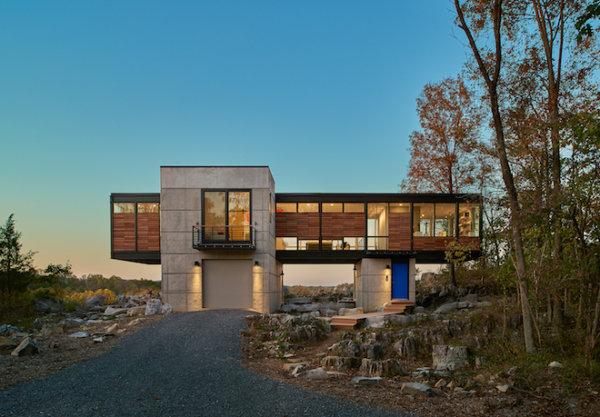
©Anice Hoachlander/ Hoachlander Davis Photography of Wiedemann Architects Hawk’s Nest
Conceptualised and developed for a Parisian sculptor, Wiedemann Architects designed Hawk’s Nest as a home and studio in an old limestone quarry. Perched on the cliffside overhanging the Potomac River, Wiedemann Architects adopts Frank Lloyd Wright’s outside inside approach by taking advantage of the sweeping views of the Potomac river with a simple glass and steel structure balanced on concrete pedestals. The result of the Hawk’s Nest is stunning, it simultaneously separates yet brings nature in to almost all the living spaces of the property. In their words: Two simple cast concrete volumes rise seamlessly from the limestone creating a framed view of the landscape beyond and a perch for the steel and glass structure above. The grid of steel columns modulates the space and creates framed views of the ever changing play of nature, blurring the line between inside and outside.
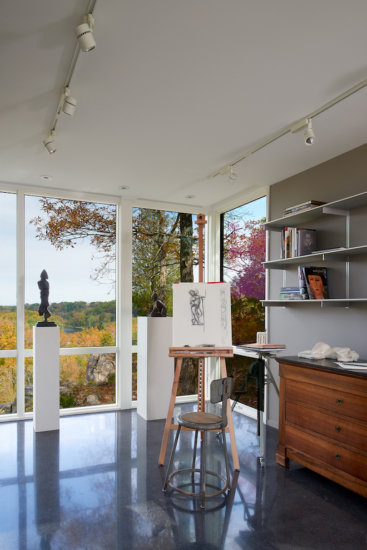
Wiedemann Architects Hawk’s Nest also features a sheltered courtyard which serves among the many touch points where one can interact directly with the natural environment, the two concrete pillars are not only functional but serve to demarcate the studio area and the entry staircase in the other but once you enter the residence, the steel and glass domicile serve only as a frame for the landscape, blurring the line between outdoors and indoors by way of floor to ceiling windows throughout the most iconic West Virginian Hawk’s Nest. As a home, it is naturally harmonious, as a creative space for a Parisian ceramic and metal sculptor, it is a provider of effortless muse. Dark concrete floors with radiant floor heat provide warmth, while the narrow plan affords natural cross ventilation.
2 | The Deplar Farm by Eleven Experience in Iceland
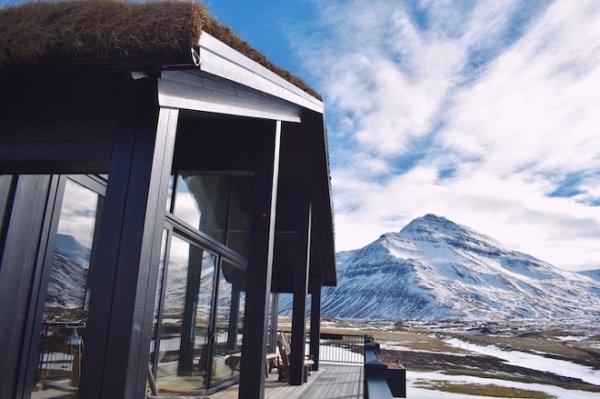
Eleven Experience’s Deplar Farm as shot by Trevor Morrow, a travel blogger. Go check out his journey to the ski resort.
Situated within the rugged and icy landscapes of Iceland’s Troll Peninsula, The Eleven Experience’s Deplar Farm is purpose designed and built to take full advantage of the Northern Lights. Made for lounging, the Deplar Farm brings the outdoors in with its floor to ceiling windows which allow a literal unobstructed view of the mountains and the pretty twilight auroras which dance across the night sky, a visual spectacle serving as nature’s reward for the Elven guests’ hard-earned heli-ski turns. The outdoors indoors property uses stone sourced from local rivers and features black timber cladding, a grass-sodded roof and of course, a goosebump raising experience as you experience a split second chill of the icy fjords environs of northern Iceland’s Troll Peninsula before complete immersion in the outdoor hot-tubs – This is as close as it gets experiencing the arctic tundra naked.
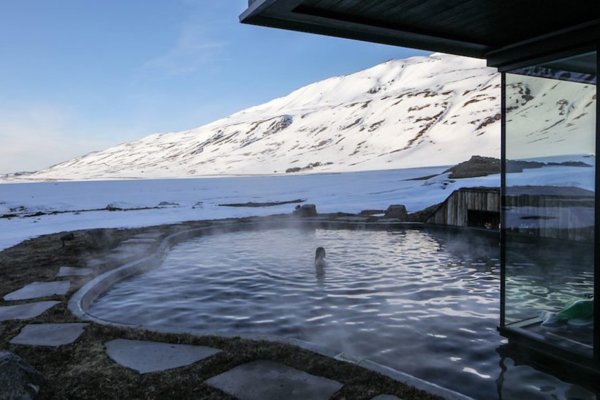
Dare you try the external hot spa of the Deplar Farm in the icy north of Iceland?
The Deplar Farm resort is a former sheep farm which has been renovated to provide not just top-of-the-line outdoorsy indoorsy experience but also luxurious accommodations. Adventure by day and rustic charm by the afternoon, nights are short this far North of the hemisphere so expect little sleep in the 13 en-suite rooms with king beds, state-of-the-art blackout blinds (for sleep or sex – simply the best activity to warm things up should you wish) and expansive views of the watery estuaries of North Iceland. Visit Trevor Morrow’s travel blog for a deeper understand of what one can experience from Deplar Farm.
3 | Cayo Espanto in Belize
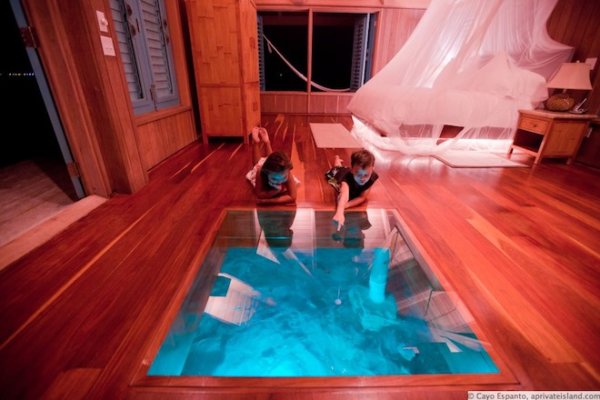
A plexiglass floor allowing you to peer into the depths of the sea – is there anything which sells the outdoors indoors experience more? The Cayo Espanto just off the coast of Belize provides the ultimate outside inside adventure because if you can’t enjoy rare blue waters not just at your door step but also in your living room, you’re really not making a full use of the visual orgasm that mother nature has provided.
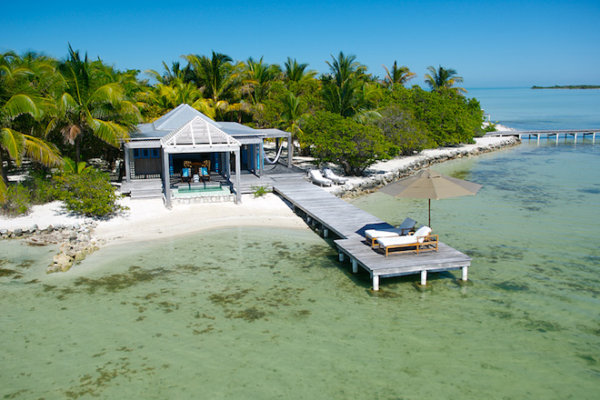
Belize’s Cayo Espanto is your exclusive private island vacation destination which offers all the benefits of private island living without the cost of owning and maintaining it. Even if you didn’t book the entire island as your private resort, Cayo Espanto resort only consists of seven villas so you don’t feel like you’re crowded out by neighbours. Each villa is cleverly designed and innovatively situated at each section of the island so it feels like you’re the only ones around. Villas range from one-bedroom beachfront property to an overwater mansion with the impressive glass-bottom floor. Regardless of size, each Cayo Espanto villa features a plunge pool, private dock with lounge chairs, and goes without saying, your own strip of white-sandy beachfront.
4 | Back Country House by LTD. Architecture in New Zealand
- David Maurice Photography for LTD. Architecture Back Country House in New Zealand
Since 2008, LTD. Architecture looked to raise standards of design in the local built environment and Back County House in the secluded bush-clad venue of New Zealand’s Puhoi settlement. LTD. Architecture’s Back Country House is a reflection of that incredible architectural ethos to “create buildings that reflect the character of the people who live in them and place in which they live with a sensitivity to the physical and cultural context of the site, using natural materials and finishes where possible with a focus on robust and elegant detailing.”
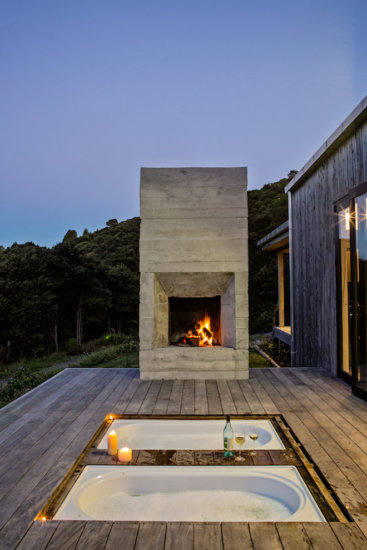
Back Country House plays on the unique New Zealand typology of bush country – exquisite simplicity using locally-sourced Macrocarpa timber cladding for the exterior, raising a single volume for living/cooking/ eating and a lean-to annex housing the lower floor service/sleeping areas while the lofted master bedroom above exists to provide similar expansive views of the rugged NZ outback. Folding glass doors provide an enhanced connection to the surrounding environment; the living area opens fully on two sides, having the feel of an outdoor room, and the fire and baths located on the deck draw daily activities out of the house and into nature. Its signature sloping galvanized iron roof pays homage to the traditional huts of the Puhoi settlement.
Words by Jonathan Ho.
